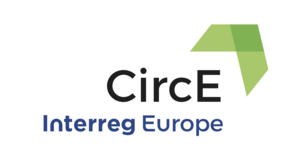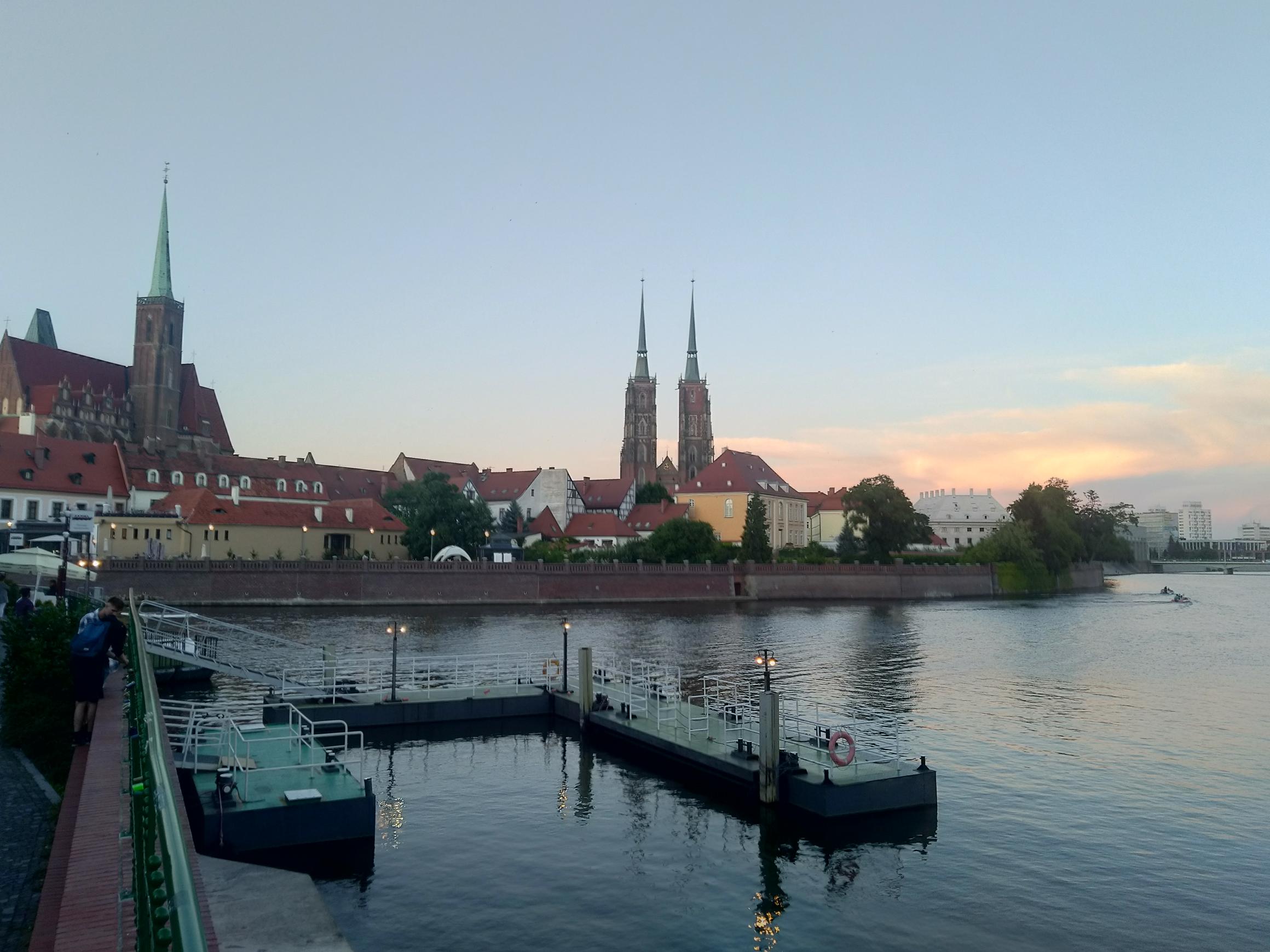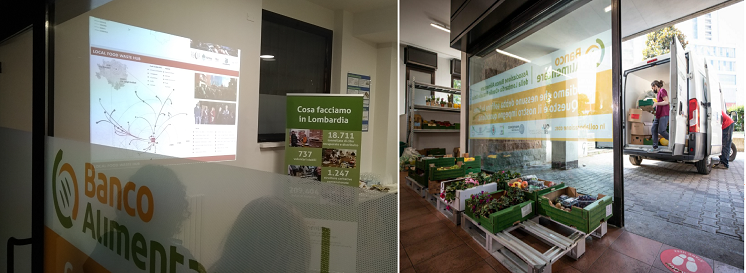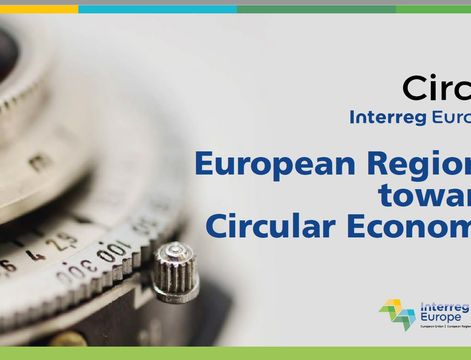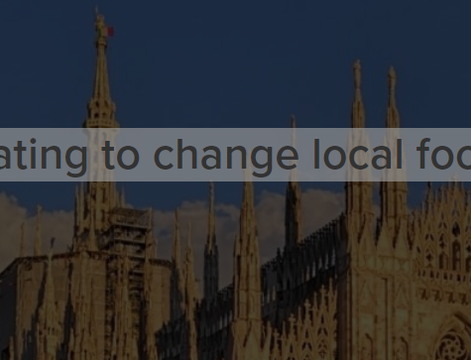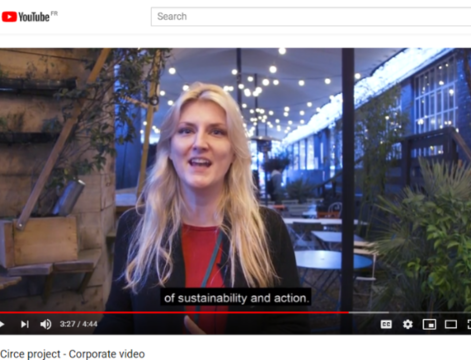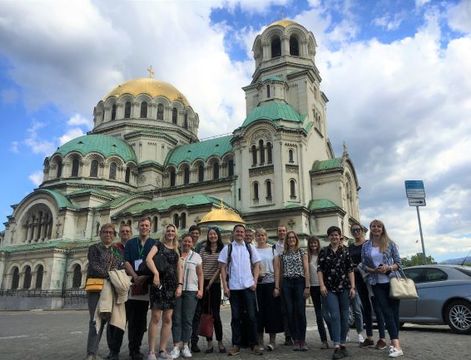The meeting started with presenting the scope and purpose of the CircE project to participants.
The task of the regional stakeholder group will include creating an action plan for Lower Silesia and participating in project activities in the partner countries, leading to the agreement with representatives of other regions of the European Action Plan for the circular economy. Based on, among others, knowledge of the members of the working group, the strengths of the Lower Silesian Voivodship in the CE areas will be determined, such as an active research base and industrial potential.
An initial version of the CircE project methodology and the "toolbox", ie the "CircE: Opportunities and Barriers Mapping Tool" was presented to stakeholders. This tool will allow to gain and compare knowledge about CE sectors in each of the regions participating in the project, identify opportunities, threats, barriers (including legal) characteristic for the CE sectors and examples of good practice.
Discussion:
- Mr. Mirosław Bachorz, eco-efficiency specialist and ecological educator, proposed that in order to implement the project CircE properly it would be advisable to use the experience of work on CE at the ministry level. It would be appropriate to invite the participants of the national CE working groups representing Lower Silesia to participate in the CircE project as stakeholders. In addition, it is worth proposing to use at least part of the CircE methodology in the preparation, within the countries business model working group, on the analysis of barriers and opportunities in the CE area. As part of the project, it would also be meaningful to gather and investigate the legal solutions existing at the voivodeship level and to see how the existing solutions are in connection with the requirements of CE existing on countries and EU level.
- Mr. Marek Kułażyński, representing the Faculty of Chemistry of the Wrocław University of Technology and EKOMOTOR Ltd. emphasized the importance of research potential of scientific institutions from Lower Silesia in the CE areas. The work of the stakeholder group should focus first on cataloging (with the help of representatives of existing research institutes) on innovative research and business projects identified in the CE areas currently implemented in the region. Dr. Kułażyński gave an example of Biostrateg II project, realized at Wrocław University of Technology. The project operates a closed-circuit pig farm. Animal energy is produced from electricity and biogas, and from methane the heat is produced. Special feed additives reduce ammonia emission while increasing weight gain in pigs. Together with the University of Life Sciences, the rape drying project is also being implemented. In addition, the University of Technology opened Master’s degree studies in automotive in English, which also covers alternative fuels. There are also plans to build a second generation biogas plant.
- prof. Marta Sebastian, representing the Faculty of Environmental Engineering at the Wrocław University of Technology, raised the problem of food waste and creative waste management. The Faculty of Environmental Engineering of Wroclaw University of Technology is implementing projects in the field of bio-waste management, among others. There is an experimental installation for the processing of food waste and research in the field of fuel properties of waste. As part of the REMOWE project, an inventory of bio-waste plants in Lower Silesia was made. Technical University also runs two master’s degree studies in Waste Management.
- prof. Agnieszka Kita, representing the University of Life Sciences, Faculty of Food Sciences, pointed to the university's great potential in the field of food waste and bioremediation. The technology for the production of erythritol has been developed and is ready for use in industry.
- Ms. Barbara Rogosz, representing the Poltegor-Institute of Open Cast Mining, pointed out the significant potential of the region in the area of extraction and processing of raw materials, particularly in the field of raw materials extraction and rare earth technology. This area is strategic for the Lower Silesia region and should be analyzed in terms of CE potential. It was agreed that further discussions with the partners of the CircE project on the inclusion of the "extraction and processing of raw materials" area should be continued for further work on the project. As part of discussions on the management of post-mining waste.
It was agreed that the participants would send to the Marshal’s Ofiice by mid-June:
- proposals of entities / persons who should be invited as additional project stakeholders,
- topics that should be included in further work of the group,
- information on initiatives and projects, examples of good practices, contacts with businesses.
The next stakeholder meeting will take place at the end of June.
